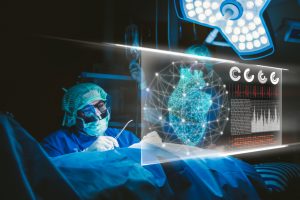Preventable medical errors account for more than 400k deaths each year in the U.S. alone, making them the 3rd leading cause of death. Twenty-six percent of these errors happen in the operating room, at a cost of over $36 billion and countless priceless lives. Boston-based Activ Surgical announced the development of a new platform earlier this year, ActivEdge, designed to improve surgical efficiency using artificial intelligence (AI) and machine learning (ML).
These surgical intelligence units are work to avoid preventable surgical errors and complications by bringing real-time intelligence to physicians, giving them a stronger visualization of procedures as they perform them. The hardware agnostic software portfolio will be able to be used across the gamut of laparoscopic procedures, such as gastrectomies, hysterectomies, colectomies, and hundreds more. These low-risk, minimally invasive procedures are primarily used for diagnostics, which will become more detailed and accurate using ActivEdge.
"Innovation in the surgical vision category is long overdue; the most commonly employed surgical imaging process, ICG, uses fluorescent dye invented more than 70 years ago and does not offer real-time, objective physiologic information to surgeons when they critically need it during procedures," said Activ Surgical co-founder and chief science officer, Dr. Peter Kim.
Activ will make the product available in the U.S. first, with expanded global commercialization slated for sometime in 2021. To do this, they will need a large amount of capital, which they just received in a $15 million funding round. The round was led by ARTIS Ventures, and also included LRVHealth, DNS Capital, GreatPoint Ventures, Tao Capital Partners, and Rising Tide VC.
Activ’s rise has been fairly meteoric, having been founded in 2017 and already securing over $25 million in funding. They are the first of their kind in terms of the software they provide, and the market is hungry for technology that can improve outdated procedures and patient quality of life. They were responsible for the first autonomous robotic soft-tissue surgery in the world. The privately held company has quickly carved out a spot as a global leader in surgical software and medical guidance systems with platforms that autonomously collaborate with surgeons.























